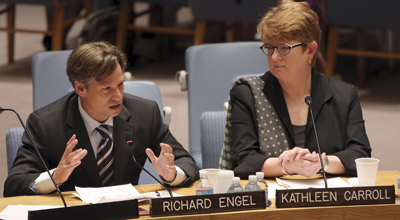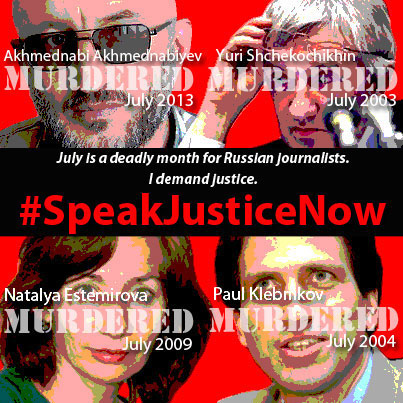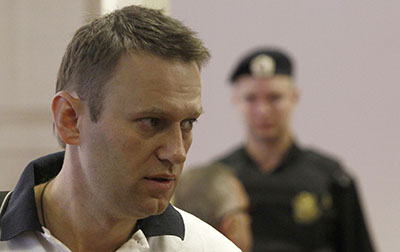Groups call for EU action against mass surveillance
Recent revelations of American and British mass surveillance of digital communications have triggered an intense mobilization of European free speech and civil liberties organizations, which have launched an online petition calling on leaders of the European Union to halt the practice. The #dontspyonme campaign was presented by Index on Censorship, an independent, British, free speech…

After Security Council, what next for journalist safety?
Speaking at a U.N. Security Council discussion about the protection of journalists, Associated Press Executive Editor and CPJ Vice Chair Kathleen Carroll remembered the 31 AP journalists who have died reporting the news and whose names grace the Wall of Honor that visitors pass as they enter the agency’s New York headquarters. Most were killed…
Mediapart complies with ruling, but vows to fight on
At midnight on Monday, the French news website Mediapart complied with the Versailles court of appeal which last week ordered the site to withdraw articles referring to the Bettencourt recordings–the secret tapings of Liliane Bettencourt, the richest woman in France, by her butler. Mediapart as well as the newsweekly Le Point had been sued for…

Surveillance detection for journalists in the field
Much has been made recently about the digital surveillance of journalists–and rightly so–but physical surveillance remains a key tactic of security forces, law enforcement, and private entities. These operatives are monitoring journalists, gathering intelligence on them, and potentially obstructing journalists’ work or putting them at risk.
French website Mediapart faces crippling judgment
Three years ago, revelations by the independent news website Mediapart on the “Bettencourt affair”– allegations of illegal funding of former President Nicolas Sarkozy’s conservative UMP party by the heiress of the L’Oréal fortune, Liliane Bettencourt–put the fledgling site on the map, helped it build a reputation as a dogged and fearless muckraker, and boosted its…

Anniversaries of Russian journalist murders pile up
Last week, I was preparing to write a column about the anniversary of Paul Klebnikov’s murder. The American editor of Forbes-Russia was murdered contract-style nine years ago in Moscow at the age of 41. He had investigated connections between Russian business and organized crime, as well as ethnic and political tensions in Chechnya. Despite numerous…
Hopes dashed again for more press freedom in Macedonia
On June 21, Macedonian journalists, intellectuals, artists, and free thinkers breathed a sigh of relief. The U.N. special rapporteur on the promotion and protection of the right to freedom of opinion and expression, Frank La Rue, visited Skopje and held one of the most straightforward and honest press conferences on the state of freedom of…

The targeting of Russian blogger Aleksei Navalny
The trial of Aleksei Navalny is coming to an end at the Leninsky District Court in the river city of Kirov, 500 miles northeast of Moscow. Navalny, a charismatic 37-year-old lawyer, was propelled to fame through his activities as an anti-corruption blogger, activist, and a leader of Russia’s opposition movement. Most recently, he pledged to…

Attacks in Egypt highlight risk of covering protests
From São Paulo to Istanbul to Cairo, coverage of street demonstrations has re-emerged as an exceptionally dangerous assignment for journalists. Since June 1, CPJ has documented more than 120 attacks on the press amid the civil unrest in Brazil, Turkey, and Egypt–the biggest surge of attacks in such circumstances since the uprisings that swept the Arab world…
